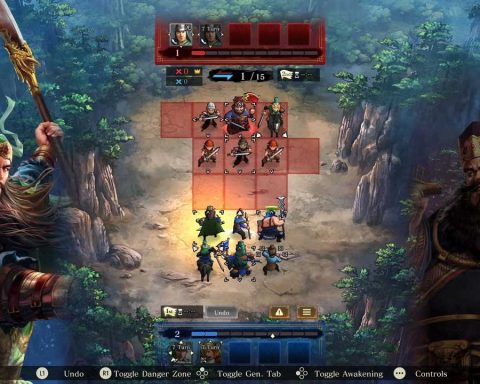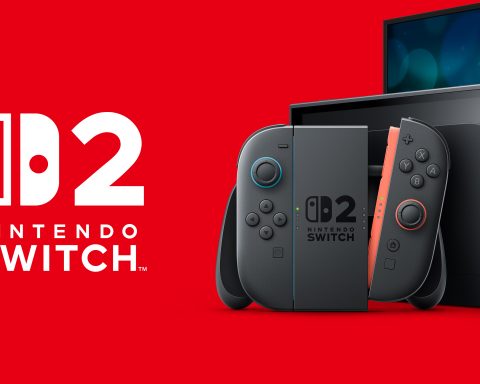At this point, I think that I’ve been fully Stockholm Syndromed into Football Manager Touch. The three previous titles on Nintendo Switch are all inside my top 20 in terms of total hours playtime on the console. Every year without fail these things land on the eshop, and every year I download that year’s edition, deal with its (many) rough edges, and end up spending hundreds of hours lost into its intricacies. That is despite each title being a very genuine spreadsheet simulator, and I hate spreadsheets. So why do I find Football Manager so compelling?
The obvious reason first: running a football club is for so many of us a dream. FIFA lets you live the dream of playing football, but Football Manager lets you take ownership of your favourite team. Carefully structuring a team around your preferred tactics, watching your decisions play out on the field of battle, but having no direct control over the action on the pitch is a surprisingly narrative-driven experience. You’ll find yourself getting frustrated that your star striker is going match after match without a goal. In practice, he’s a line of text on the screen, a page of statistics, and a really low-quality profile image, but you’re going to really care that that block of data isn’t delivering. Football Manager Touch 2021 brings the social media elements right to the foreground, with the fake Twitter stream telling you just what the fans think of your performance as a manager with every match.
Play well and you’ll find your team winning competitions or even promoted to the next level of competition (especially if you play the English competition, which goes deep into the lower-level leagues and has the full promotion/demotion system in place). A few Football Manager titles ago, I managed to take a minnow from the lowest level of competition and get them into the EPL itself, and its testament to the storytelling quality of Football Manager Touch that I remember that journey more clearly than almost any other game I’ve ever played. The fact I want to repeat that journey is another reason that I keep playing these games (I’ve never come close since). It’s not that I’m immersed in the visual side of the game – the in-match 3D renders are primitive and otherwise it’s a case of wading through spreadsheet after spreadsheet. It’s simply that I’m just fully invested in what those data sets are telling me, and the rewarding feeling that comes from making them sing.
That is one cracking counter-attack #NintendoSwitch pic.twitter.com/naxSJCgy8y
— DDNet – We like Japanese games 😀 (@MattSainsb) December 22, 2020
It’s like you’re running your own private Moneyball story. As Michael Lewis wrote in Moneyball: “People in both fields operate with beliefs and biases. To the extent you can eliminate both and replace them with data, you gain a clear advantage.” What I find to be absolutely fascinating in Football Manager is that it highlights how hard it is to actually do that. Even when you’re given the tools that you need to go hardcore data-driven in your decisions, and even when you don’t need to deal with the politics and personalities of real people and stakeholders, you’ll still end up with your pet favourite players. The little digital dude that cinches the win from the jaws of defeat with a crazy goal. Or, alternatively, your favourite players in the real game that you just can’t let go in virtual management even when everything is suggesting that they’re dragging the team down. Football Manager Touch is a surprisingly accurate recreation of the experience of being a manager in the real sport.
The depth of the data sets means that it’s all-but-impossible to “game” Football Manager Touch. There’s no one right path to success, and indeed, being inflexible tends to turn positive results into negative. You’re also going to be constantly hamstrung by the need to manage your team to strict financial limits, and it can be fascinating trying to cobble together a successful team when rivals in the competition are able to significantly out-spend you. There are pages, and pages, and pages of data to wade through, and while it’s possible to delegate many of the responsibilities to AI-controlled second,-in-commands, it’s also possible to micromanage the lot, leading to hours of careful study between matches at times.
The big issue that Football Manager on Switch faces is the user interface, which is clumsy beyond reckoning. I still can’t work out how the default menu system works – it seems to be impossible to highlight players in the spreadsheet, or pull up critical contextual menus about them when I want to set their transfer status, move them to and from the reserves, and so on. Instead, I play by the alternative control system, which involves pulling up a virtual mouse cursor to navigate around. This works, but the movement of the cursor across the screen is “sticky” and slow. Throw in some crashes (they would happen often when I tried pulling up post-match replays), and some odd formatting bugs, and this is a game that needs to be massaged to get the most out of it.
They’re all manageable, however. My one really big disappointment is how little the developer is doing to get additional leagues into the game at this point. There are something like 50 leagues, so in isolation, I’m not complaining with the amount of content in the game, however there’s still no J-League, despite Japanese football being an exciting place right now. There are minor competitions like those in Singapore and India, but outside of Europe, Asia and South America, there is a dearth of representation. There’s not a single Oceanic league, for example. There are far too few African leagues for how big the sport is there, and North America is only represented by the most obvious competitions that you would expect. It’s also worth noting that there is no women’s competition in Football Manager Touch, and while I do appreciate that there’s more work in terms of data creation and entry to implement woman’s football in comparison to a gameday sim like FIFA, it’s still unacceptable for a modern sports game not to include the women’s version on some level. Overall, the licensing team should be working harder than this, because yes, while I’m sure that most players don’t look much further than the EPL and perhaps their local league, there are some of us do find the “minnows” to be fascinating challenges.
Criticisms aside, Football Manager Touch 2021 is impossible to put down. The bugs and crashes don’t matter. The presentation doesn’t matter. It also doesn’t matter that this game is so dangerously close to crossing the line to become actual work that I wouldn’t be surprised if the developers actually collect people’s play data to pass on to the real-world managers to give them ideas for their actual decision-making. Football Manager is emergent narrative brilliance, and Touch 21 doesn’t let us down there by any means.









